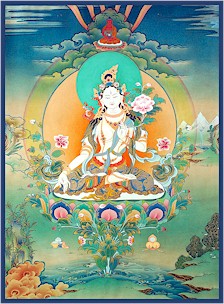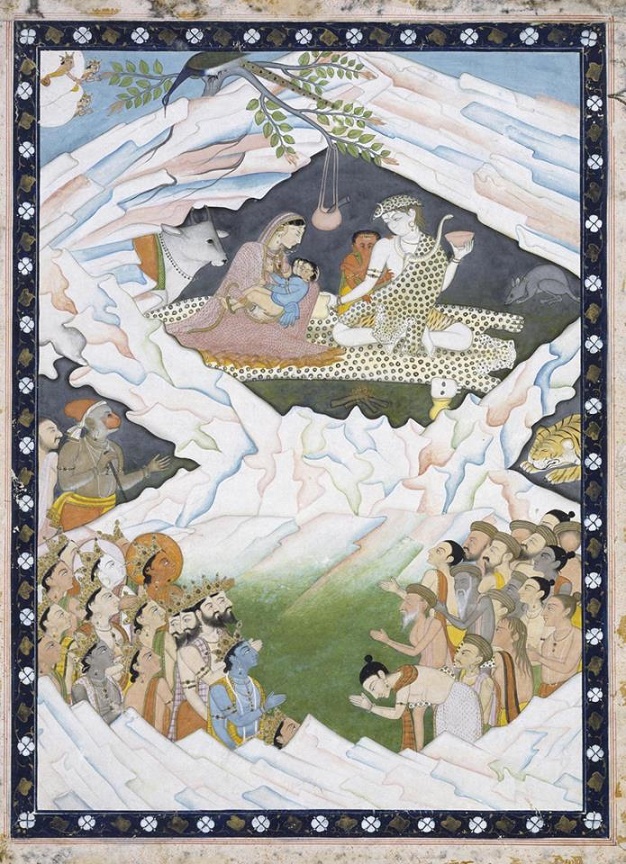

Vimshottari Dasha - Rashi - Gochara - Bhava - Graha - Ratna - Nakshatra - Amsha - Karaka - Varga - Bala
- Traditional Jyotishavidya Sacred Jewels Ratna for Shukra
- Sweet-seeking Shukra reaches maturity = age 25
- [energizing-identifying lagnesha for Urisha indriya-lagna]
- [energizing-identifying lagnesha for Tulā indriya-lagna]
- BPHS Vimshottari Dasha of Shukra
- BP Lama commentary Shukra-Mahadasha
Shukra occupies 4th-from-Chandra
- [Shukra-Mesha]
- [Shukra-Urisha] [svakshetra]
- [Shukra-Mithuna]
- [Shukra-Karkata]
- [Shukra-Singha]
- [Shukra-Kanya] [nīcha]
- [Shukra-Vanika] [svakshetra] [mūlatrikoṇa if within 1-10 deg]
- [Shukra-Vṛścika]
- [Shukra-Dhanus]
- [Shukra-Makara-Draco]
- [Shukra-Kumbha]
- [Shukra-Meena] [uchcha]
- [Shukra in bhava-1]
- [Shukra in bhava-2] [svabhava]
- [Shukra in bhava-3]
- [Shukra in bhava-4] [dikbala]
- [Shukra in bhava-5]
- [Shukra in bhava-6]
- [Shukra in bhava-7] [svabhava]
- [Shukra in bhava-8]
- [Shukra in bhava-9]
- [Shukra in bhava-10]
- [Shukra in bhava-11]
- [Shukra in bhava-12]
- [Shukra-yuti-Surya]
- [Shukra-yuti-Chandra]
- [Shukra-yuti-Mangala]
- [Shukra-yuti-Budha]
- [Shukra-yuti-Guru]
- [Shukra-yuti-Shani]
- [Shukra-yuti-Rahu]
- [Shukra-yuti-Ketu]

White Tara, mother of all the Buddhas, goddess of Compassion and Serenity
https://en.wikipedia.org/wiki/White_Tara
OM shum shukraya namah
OM dram drim draum sah shukraya namah
Himkundmrinaalaabham Daityaanam Paramam Gurum
Sarvashastrapravaktaram Bhargavam Pranmaamyaham
शुक्र śukra / शुक्ल śukla
Professor Shukra
सित sita = white color, pale, lustrous
श्वेत śveta = white color
भृगुज bhṛgu Bhrigu
= the bright one
षोडशार्चिस् ṣoḍaś-ārcis = 16-rayed
दैत्यगुरु daitya-guru / असुरगुरु asura-guru
= grower of demons
occupies
Bandhu-daya
Sukha-bhava
[dikbala]
Venus - Venera
Freya - Frigg = Friday
Zuhra
Ishtara Ashatarra
Phosphoros - Heosphoros
Lucipheros = Lucifer, light-bringer
Vesper
Mathusias
Morgensteorra - Aefensteorra
Dianna - Inanna - Nin-si-anna
Aphrodite
Nogah - Ba'ah
Seba-djai
Delebat - Jingxing
resides in
the fourth house
genitor * domus
pleasure from schooling, homeland, mother
balances and harmonizes the roots - routes - ruts - routines (4)
luxury, beauty, harmony, balance in the habitat
preference for protective, defending, sheltering relationships

Painting, in opaque water-colour and gold on paper, of Mount Kailash with the family of Shiva and Parvati and their children sitting on a leopard skin. Nandi and a tiger are at either side while deities and worshippers look on.
Opaque watercolour and gold on paper, mandi, ca. 1810-1820. Copyright: © Victoria and Albert Museum, London * provided by Rare Book Society of India
QUOTATION from ~~ Tenzing Gyatso. (1989). The Dalai Lama at Harvard: Lectures on the Buddhist Path to Peace. Jeffrey Hopkins (Trans). (Ed).
" Karmas that are accumulated for the sake of internal pleasure, upon having overcome attraction for external pleasure and having become attached to the pleasure that arises with internal meditative stabilization [which is meritorious], are involved with the first three concentrations.
-
These are called unfluctuating karmas in that they bear their fruit only in those concentrations.
Then, karmas that are accumulated upon having turned away even from such pleasure of internal meditative stabilization and within seeking just neutral feeling are unfluctuating karmas associated with the fourth concentration and the four formless absorptions.
-
However, if, through understanding this presentation, you develop renunciation of all types of such cyclic existence, and accumulate karmas for the sake of permanent bliss,
-
these karmas will bring about liberation from cyclic existence." [end quote]
EXAMPLE
[dikbala]
[Yogakaraka witty-speculative vidya-pati for Makara - Draco indriya-lagna] [Yogakaraka dutiful-executive karmesha for Makara - Draco indriya-lagna]
home-based, cultural-roots harmony
[Shukra-Urisha] [svakshetra]
[dikbala]
[Yogakaraka philosophical-believing dharmesha for Kumbha indriya-lagna] [Yogakaraka homebound-anchoring bandesha for Kumbha indriya-lagna]
-
Das Kapital 1818-1883 economics Karl Marx [economic-connected Kṛttikā-3] [Rohini-Budha-yuti-Shukra-Krittika]
[busy-messaging sahaja-pati for Meena - Antya indriya-lagna] [mysterious-revealing randhresha for Meena - Antya indriya-lagna]
[enjoys talking in the home] [balanced domestic discussions] [graciously gestures in the customary style] [pleasantly communicative mother]
reporting contracts which bind the home culture
-
POTUS-41 All the Best 1924-2018 George H.W. Bush [financial-heritage Punarvasu-2] [Budha-3 parivartamsha Shukra-4
[banking-conserving dhanesha for Mesha indriya-lagna] [bargaining-balancing jaya-pati for Mesha indriya-lagna]
[enjoys protection in a comfortable home] [prefers balanced domestic arrangements] [bargains to sustain a gracious household and customary worship]
[likes ethnic ancient rhythms of folklife] [culturally routine parents may be farmer-gardeners, patriot-defenders, transport-pathways]
-
Christian Science 1821-1910 Mary Baker Eddy [indoctrinated-optimistic Aśleṣā-1] + [Aśleṣā- Budha-yuti-Surya]
[Shukra-Simha] [dikbala]
[energizing-identifying lagnesha for Urisha indriya-lagna] [medicating-inimical rogesha for Urisha indriya-lagna]
[delights in a showcase home] [artistic performance in the kitchen] [Displays the beauty of homeland ancestry]
identified with the balancing of homey ethnic foundations - inequity, disenfranchisement, debt, ailment in contracts for homeland, school, transport
-
Two Women 1934- luxury eyeframes Sophia Loren [calculating-strategic Pūrvaphalgunī-2] [navamsha Shukra-Kanya-nicha]
-
Entertaining 1941- housekeeping Martha Kostyra Stewart [dramatizing-demonstrating Pūrvaphalgunī-1]
-
Zorro 1969- drama-commerce Catherine Zeta Jones [ensemble-collaborative Magha-3] [Ketu-yuti-Shukra]
-
Syria-Pres-pair 1975- banker AsmaAl-Assad + [ministering-strategic Pūrvaphalgunī-2] [navamsha Shukra-Kanya-nicha] [Chandra-yuti-Budha]
***
-
Moral Majority 1933-2007 Rev. Jerry Falwell [secretive-disguising Pūrvaphalgunī- 4] [Shukra-yuti-Ketu]
[Shukra-Kanya] [nīcha] [dikbala]
potentially nicha-bhanga if yuti Budha-Kanya
[creative-gambling vidya-pati for Mithuna indriya-lagna] [contemplative-retreating vyaya-pati for Mithuna indriya-lagna]
[Shukra-Tula] [svakshetra]
[Malavya Yoga] [dikbala]
[mūlatrikoṇa if within 0-10 deg]
[homebound-anchoring bandesha for Karkata indriya-lagna] [friendly-profitable labha-pati for Karkata indriya-lagna]
[dutiful-hierarchical karmesha for Simha indriya-lagna] [busy-messaging vikrama-pati for Simha indriya-lagna]
reputation for anchoring, ancient mystery routines
-
Autobiography of a Yogi 1893-1952 Swami Yogananda [populist-profitable Jyeṣṭha-3]
[Shukra-Dhanus] [dikbala]
[collecting-preserving dhanesha for Kanya indriya-lagna] [believing-preaching dharmesha for Kanya indriya-lagna]
-
Mughal Emperor 1592-1666 Shah Jahan [champion-challenger Mūla-1] [Shukra-yuti-Ketu]
-
Bacteriology 1822-1895 Microbes Louis Pasteur [dramatizing-entitled Pūrvāṣāḍhā-1] [Atmakaraka] + [Apah-Shukra-yuti-Surya-Apah][Apah-Shukra-yuti-Budha-Mūla] [Apah-Shukra-4 parivartamsha Krittika-Guru-9]
[Shukra-Makara-Draco] [dikbala]
[energizing-identifying lagnesha for Tulā indriya-lagna] [secretive-transformative randhresha for Tulā indriya-lagna]
treasury status maintained via home-based, culturally rooted arrangements
-
Harmonices Mundi 1571-1630 Johannes Kepler [regulatory-governing Uttarāṣāḍha-2] [vargottamsha] [Vaishva-Shukra-yuti-Ketu-Śrāvaṇa] [uchcha-yogakaraka-Shani-1 parivartamsha lagnesha-Shukra-4]
-
China-Dictator 1893-1976 Mao Zedong [calculating-strategic Dhaniṣṭha-2] [navamsha Shukra-Kanya-nicha] [Shukra-4 parivartamsha Shani-1-uchcha]
***
-
Avant-gardiste 1933- Beatle-pair Yoko Ono [rhythmic-routinized Śrāvaṇa-4] [Shani-yuti-Shukra]
-
Best Is Yet to Come 1949-2022 designer Ivana Zelnickova Trump [dramatizing-showy Dhaniṣṭha-1] [Budha-yuti-Shukra] [4, interior design]
[Shukra-Kumbha] [dikbala]
[bargaining-balancing yuvati-pati for Vṛścika indriya-lagna] [contemplative-visionary vyaya-pati for Vṛścika indriya-lagna]
-
POTUS-pair-37 Watergate 1912-1993 Pat Ryan Nixon [secretive-erupting Dhaniṣṭha-4] [Dhanistha-Shukra-yuti-Chandra-Varuna]
-
POTUS-pair-38 Addiction Recovery 1918-2011 Betty Bloomer Ford [social-ordering, class-conscious Varuna-2] [Chandra-yuti-Shukra]
-
POTUS-pair-44 Let's Move 1964- Michelle Robinson Obama [inspirational-ideological Varuna-1] [Chandra-yuti-Shukra]
[inimical-medicating rogesha for Dhanus - Haya indriya-lagna] [earning-friendly labha-pati for Dhanus - Haya indriya-lagna]
[domestically arranging habits] [generous protective integrity in negotiations] [enlarged graciously balanced caretaking shelter]
[jovially attractive breast-chest-stomach] [valued musical-artistic household decor] [feminine companion may be beautiful and gainful but adversarial]
-
Graceland 1945- drama-homeware Priscilla Beaulieau Presley [charitable-guiding Revatī-4] [uchcha-vargottamsha] [navamsha Shukra-Meena-uchcha] [uchcha-Shukra-yuti-Mangala]
-
Fijación Oral 1977- singer Shakira Mebarak [creative-theatrical Uttarabhadra-1]
***
-
POTUS-10 Annex Texas 1790-1862 John Tyler [patriotic-defensive Purvabhadra-4] + [Shani-yuti-Surya]
-
My Sweet Lord 1943-2001 Beatle George Harrison [creative-performing Uttarabhadra-1]
Enjoys security, protection, predictable and rhythmic lifestyle
-
appreciates sheltering and roots relationships based in the folkways, ancient customs, and established cultural norms of a settled people and their lands
Balancing, trading, negotiating, brokering among the
- householders, denizens, citizens, parishioners
- farmers, fisherpeople, cultivators, settled dwellers
Luxurious pleasures via sensual nourishment and gracious home environments, bordered lands and fenced properties, luxury transport.
-
Appreciates the value of parenting and schooling
-
Deeply enjoys the familiar landscapes of owned-stewarded property : homes, farms, gardens, ranches, estates.
-
Shukra-4 also likes ponds, lakes, coastal waterways, estuaries, beaches, bodies of water which may produce nourishment (fish, water-greens) and are bounded by lands
-
pleasure from transport: ships, airplanes, boats, wagons, trucks, lorries, ferries, carries, carriages, cars, carts, cargo
Enjoys [Shukra] ships and shipping (4) = transport over oceans and seas (4)
Loves the mother-figure and motherland, caretakers and cultural roots
- Lushly rhythmic lifestyle
- folkways
- ancient customs
- established cultural norms
- holiday traditions
- home, garden, and kitchen
- real estate and vehicles
- customary manners
- basic schooling
pleasure in home and security, sweet patriotism.
-
UK Queen 1819-1901 Empress Victoria-1 [vocal-traditional Aśvini-2] [navamsha Shukra-Kanya-nicha] [Budha-yuti-Shukra] shukra is an empowered yogakaraka from QV's Makara indriya-lagna, and Shukra rules Chandra-5-Urisha. Her marriage to QV's cousin, aGerman prince and father of their nine children, was heralded as a model of British domestic bliss (4) public respect (Shukra rules 10) and aristocratic entitlement (Shukra rules 5).
Shukra-4 acquires directional strength [dikbala] carrying auspice of a well-managed home where a climate of agreement generally prevails.
sweet love of luxury cars and beautiful kitchens
-
kitchen cooking teacher + patriot Julia Child
-
Entertaining 1941- housekeeping Martha Kostyra Stewart [dramatic-displaying Pūrvaphalgunī-1] doyenne of elegant home-keeping
-
Zorro 1969- drama-commerce Catherine Zeta Jones [beautiful Shukra in ensemble-managing Magha-3] [Ketu-yuti-Shukra] luxury home-goods business
If Shukra is strong, particularly Shukra-Meena [uchcha] = Malavya Yoga - music and luxury in the childhood home, usually in a lovely or wealthy neighborhood. Mother or parents are musically gifted. The adult home acquires many of the same traits such as music and artistic decoration.
pleasure in repeating the cycles, habits, cultural roots and established social folkways, ancient customs, and established cultural norms.
Enjoys schooling and basic education for purpose of continuing the folkways, ancient customs, and established cultural norms of a people.
-
Moral Majority 1933-2007 Rev. Jerry Falwell [financial Shukra in secretive Pūrvaphalgunī- 4] [Shukra-yuti-Ketu] founder and long-time director of Liberty University
Aesthetic of the Old and Customary Ways, values ethnic nationalisam
balanced approach to defense of the land and its boundaries
aesthetic preference for marine or coastal locations
diplomatic partnerships or marriages involving vehicles and lands
ownership of valuable real properties,
pleasant relations with parents and caretakers,
Spends money [dhanesha Shukra] on
-
home - everything for the home, real estate, the landed estate
-
vehicles (luxury)
-
schooling, funding, and decorating schools; schoolteachers, esp. women
-
parents
-
patriotic activities
-
boundary defense
-
Obtaining licenses, diplomas, certifications, and other documents of social legitimation
-
My Sweet Lord 1943-2001 Beatle George Harrison [uchcha] Shukra-4 * famed for his 36-acre " garden" , stables full of expensive racing cars, and generally secure borders around his gated estate Elite car collector.

BoBiloArt - AI village
Affinity for schools and cultural foundations.
Attracted to the traditional rhythms of the home environment, protected sheltered spaces, the educational classroom, parenting and caretaking environments.
Likes to decorate the dwelling inside and outside; beautiful furnishings; appreciates well-behaved and appreciative guests; is a gracious entertainer in the home. Likes nice cars and airplanes.
Well-liked by members of the mother's culture, teachers in the local school, and fellow countrymen. Deep affection for one's country
-
master-teacher chef and wartime spy, Julia Child
If structural Shani or instructional Budha are involved, one may study architecture , home construction, interior decoration, property ownership-stewardship .
-
Harmonices Mundi 1571-1630 Johannes Kepler [regulatory-governing Uttarāṣāḍha-2] [vargottamsha] [Vaishva-Shukra-yuti-Ketu-Śrāvaṇa] [uchcha-yogakaraka-Shani-1 parivartamsha lagnesha-Shukra-4] = cosmological architectonics
-
Das Kapital 1818-1883 economics Karl Marx [Budha-yuti-Shukra] * property ownership-stewardship
-
POTUS-03 Declaration of Independence 1743-1826 Thomas Jefferson * architecture
Pleasure-wealth comes from land-ownership
-
Harmonices Mundi 1571-1630 Johannes Kepler [regulatory-governing Uttarāṣāḍha-2] [vargottamsha] [Vaishva-Shukra-yuti-Ketu-Śrāvaṇa] [uchcha-yogakaraka-Shani-1 parivartamsha lagnesha-Shukra-4] = acquired and maintained a profitable real-estate portfolio of rental dwellings, via dowry of his first wife
-
POTUS-03 Declaration of Independence 1743-1826 Thomas Jefferson owned lavish slave-operated plantations
one's parents
-
Autobiography of a Yogi 1893-1952 Swami Yogananda
Rashi of Shukra will determine the specific type of home; usually the native lives in a pleasant and even luxurious place, and is nicely cared for and harmoniously decorated.
Parenting style is indulgent and sweet. Native or their mother may operate a school of arts or music in their home.
First caretaker is the mother, who is gracious and may even adore her child; subsequent caretakers also lavish much favorable attention upon the native r.
Takes great pleasure in the landscape, and appreciates all works of Nature. Loves their mother and finds her quite beautiful. Nice comfortable vehicles.
Not generally favorable for a rigorous analytical education as the individual is too much oriented toward love and beauty. However, the y tend to do well in life. Natives makes a successful aesthetic match with their surroundings. Socially attractive even if the native is not a classic beauty, because people enjoy having one in their environment.
Gifts
Selecting a gift for the native with Shukra in 4?
These folk enjoy pleasures of vehicles (including watercraft) and home - homeland.
Much appreciated gifts for Shukra-4 may include accouterments of the familiar, shelter-loving life, such as gracious appointments for the home or other luxurious items of art and music which enhance the refinement of one's patriotic or educational sensibilities.
For one playing husband-role, Shukra represents the wifely-companion
husbandly nativity usually attracted to wifely nativity which has a traditional gendered social role such as mother, home-maker, teacher, or guardian of the cultural roots. One prefers a secure, home-based lifestyle.
Often, the husband-role meets the wifely-companion in the home, especially the kitchen, or in a school or in the context of shelters such as buildings or vehicles.
Her ability to establish physical and emotional security in the home is important to him, and her cultural rootedness may form the basis of the marriage.

Shukra in bhava-4 takes pleasure in transportation vehicles of all kinds, including wagons and carts, cars and trucks, airplanes and balloons, and watercraft. In the bhava of ocean and coastal life, shukra-4 is particularly fond of fishing boats, submarines and all sorts of ships
NOAA Ship Fairweather with Mount Fairweather in the background. Alaska, USA. https://1.usa.gov/N9 z1f
Characteristics of the Environment where ones meets the life-partner(s):
- patriotism, parenting
- stability and security
- sheltering, protecting
- schooling, school-teaching
- defense of the land
- homes and housing, real estate
- fencing, property demarcation
- customary habits of a people
- traditional activities of a people
- fishing, marine life, boats, waterways
- vehicles
Where might one meet the marriage-partner?
Applies also when Shukra occupies the defensive, culturally-rooted, seasonal-calendar, routinized, patriotic, ethno-nationalistic, comfort-seeking, home-loving, foundational, property-owning 4th-from-Chandra
-
In the home of one's parents,
-
in a kitchen,
-
in a school,
-
during a gardening or land-defense activity.
-
In context of owned fixed property, particularly lands and buildings
in context of vehicles for air, sea, and land
-
Das Kapital 1818-1883 economics Karl Marx [Budha-yuti-Shukra] * Marx and his wife were introduced at the home of his parents
-
Graceland 1945- drama-homeware Priscilla Beaulieu Presley met her future husband Elvis Presley at a US military base (4) in Germany, during a time of peace when agreeing to be drafted was a patriotic (4) action on Mr. Presley's part and not an act of war (6)
shad-ashtaka 6-8 angles from Shukra = polarizing catalysis areas for alliances
-
relatively little agreement in 6th-from;
potentially illness and conflict
-
secrecy in 8th-from , and potentially catastrophic shock
what seems "unfair" in the relationship:
adversarial, conflicted 6th from Shukra-4 = dharma-bhava-9
Papa, pitru, pulpit, public Ritual, piety, patriarchy, paternalism, proselyte, presbyter, professor, philosophy, perfect Truth
-
wisdom teaching, worship, temples, universities, sacred places, priesthood, religious learning, ritual communication between human and divine, beliefs, faith, ceremony, sacred knowledge, sacred texts; sangha (sangiti, the reciters) = faith community;
dharmasthāna = privilege to travel and learn Philosophical Wisdom and Religious Studies
-
Das Kapital 1818-1883 economics Karl Marx [Budha-yuti-Shukra] shukra-Vrishabha-4 was highly adversarial to established religion. He opined that religious dogma (9) was extremely unfair and oppressive to the point of serving as a toxic, addictive drug (6) in the lives of the working class. His slogan was,"religion is the opiate of the people"
shocking, secret 8th from Shukra-4 = vriddhi bhava-11
-
associative distribution networks, opportunity, interlocking sets of friends, elder sibling, father's brothers, mentors, connections, webs, assemblies, the marketplace, the electorate, the masses, collectivity, Large Groups, social movements, goal-oriented social activism, social progress, principled communal living, communistic systems
-
economies, ecologies, arena, assembly, agora; Gains, Goals, achievement of Objectives = "the Take" Outcome, results, returns, salary, paycheck, progress, profits, fruition

QUOTATION from Das / Bepin Behari WRT Shukra-4 [dikbala]
" An attractive spouse, fine cars, intelligent children, anice house and respectable society are among the auspicious results .
-
... Young people are attracted to such an individual.
You have an artistic temperament, highly intuitive, and can easily pick up on the feelings and thoughts of others.
-
Your company is always joyous and you are skilled in the erotic arts.
Ability in music is indicated.
-
A very happy domestic life
-
and a peaceful and comfortable end of life.
-
Gain and happiness through parents, inheritance, sthāna -property, investment.
Gets great honor and respect from the people .
You remain unaffected by the pleasure or displeasure of people.
You are content with the company around you. You are most revered. Indifferent.
-
Gains through the mother and devoted to her since childhood; prosperous, some income or employment and conveyance. Gains through relatives, friends; economic prosperity including food, home and garments.
-
Elegant and liberal . You depend on your partner for success and make a decent living. Wealth, wisdom, renown, learning and effluence, talkative. You are a sincere friend, eccentric, home-bound.
-
Lustful, variety of enjoyment
-
recognized by the authority,
-
long-living, brave,
-
blessed with a wise and beautiful partner and family.
Silver as wealth; plenty of food and milk. You have plenty of land, friends, and home.
Pious. You help poets and religious teachers. Leadership abilities, discreet, reputed, debauch. Your appearance is that of a pauper since birth; suffer from cough, colds and eye diseases.
You are wise, handsome, kind, tolerant happy. Help from mother and brothers."


[How Readings Work] [Sample Sacred Jewels Ratna Recommendationn] [Seva]
 file update =
18-Apr-2024
file update =
18-Apr-2024
[Copyright © 1994-2024 by Barbara Pijan Lama] [Contact] [How to Request a Jyotishavidya Reading]
Barbara Pijan Lama Jyotishavidya Vedic Astrology Surya Sun Chandra Moon Mangala Mars Budha Mercury Guru Jupiter Shukra Venus Shani Saturn Rahu Ketu Graha Planets Dasha Timeline Calendar Nakshatra Navamsha Marriage Children Treasury Career Spiritual Wisdom Cycles of re-Death and re-Birth
The information on barbarapijan.com , including all readings and reports, is provided for educational purposes only. Wishing you every happiness and continuing success in studies!
all that is true, all that is noble,
all that is just and pure,
all that is loveable and gracious,
whatever is excellent and admirable -
fill all your thoughts with these things."
~~ Paul of Tarsus, Epistle to the Philippians 4:8

